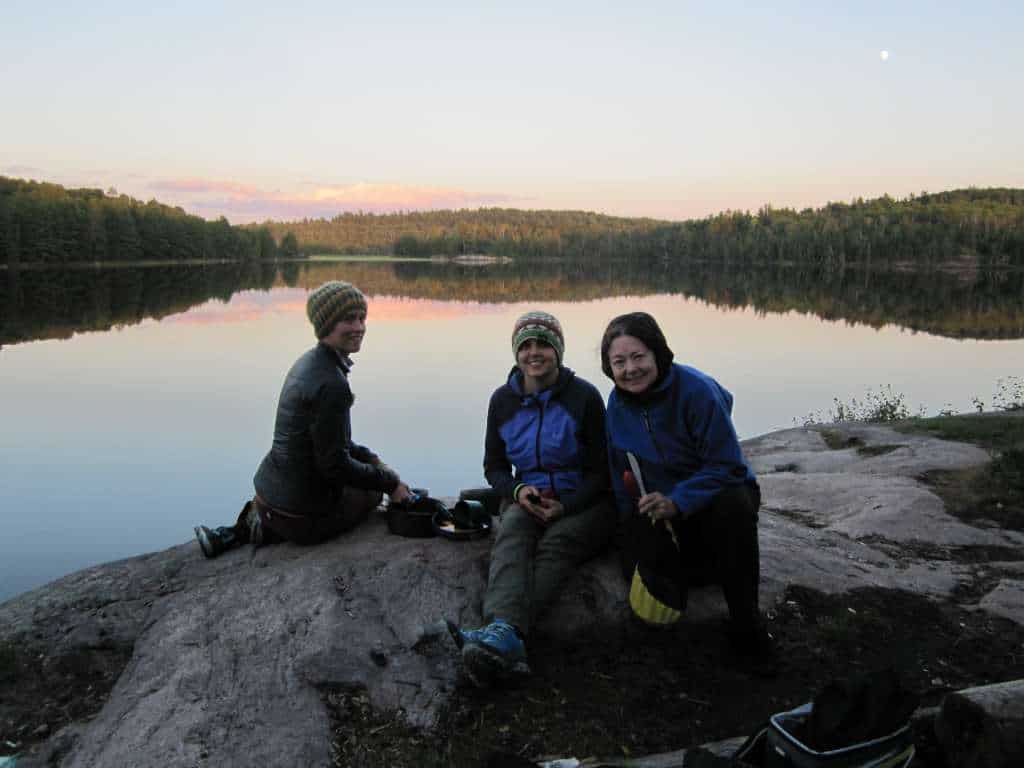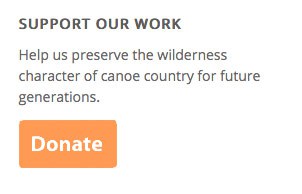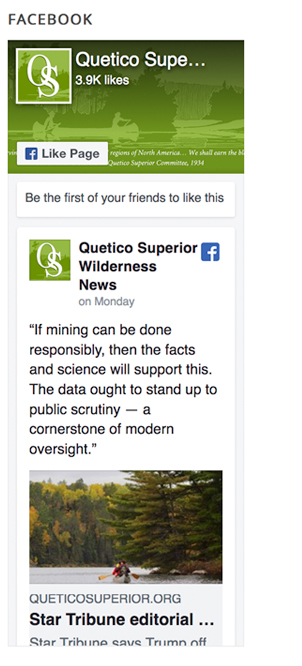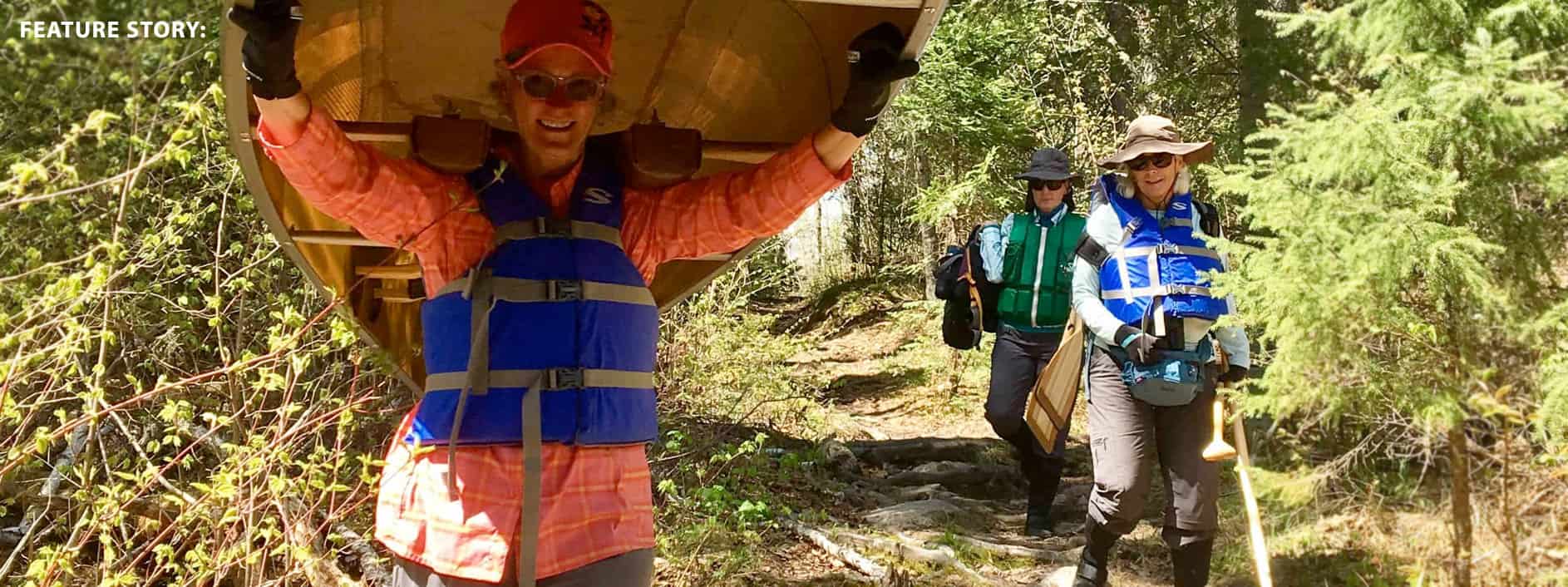
by Alissa Johnson
Last spring, wilderness guide Peta Barrett and a client walked across a portage in the Boundary Waters Canoe Area Wilderness. Her client, a confident, fit woman in her mid-60s, carried the canoe. She had expressed some concerns about doing so but was game to try with Peta nearby. When the pair reached a fallen tree across the trail, the woman hesitated.
Peta could see that stepping a foot or so higher than normal would do it to clear the tree. She encouraged her client to give it a try. “I said, ‘You’ve got this. I know you can do it. Just put the weight on your strongest side, and step over the tree with the other,” Peta said. “She did it, and she did just fine.”
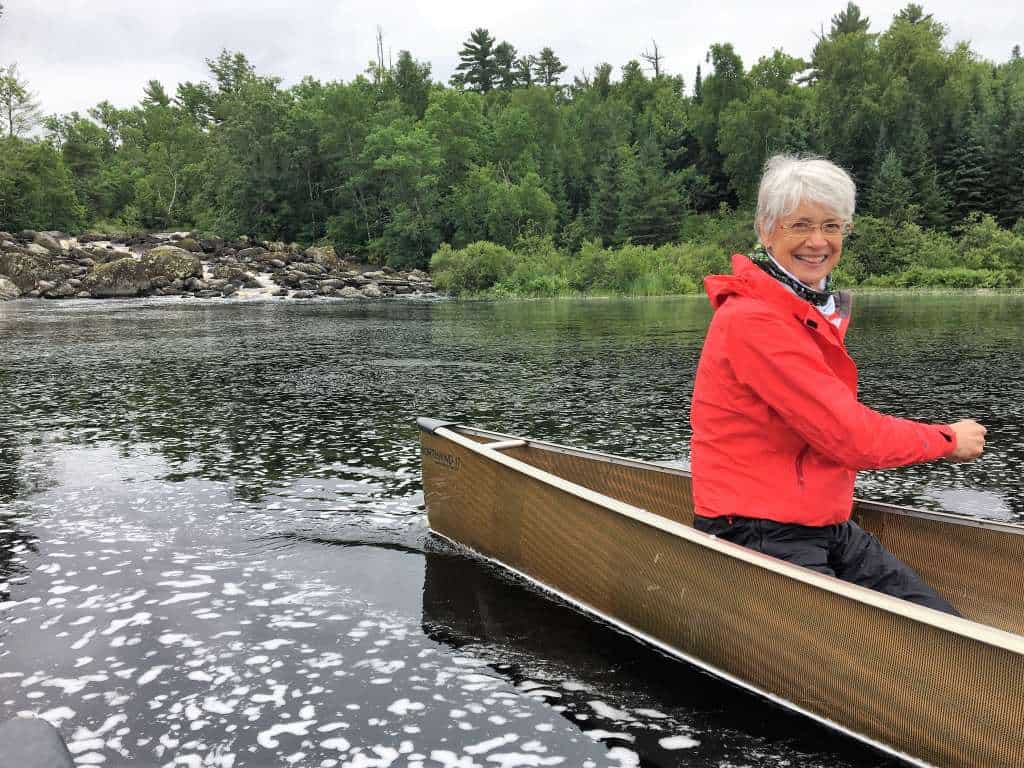
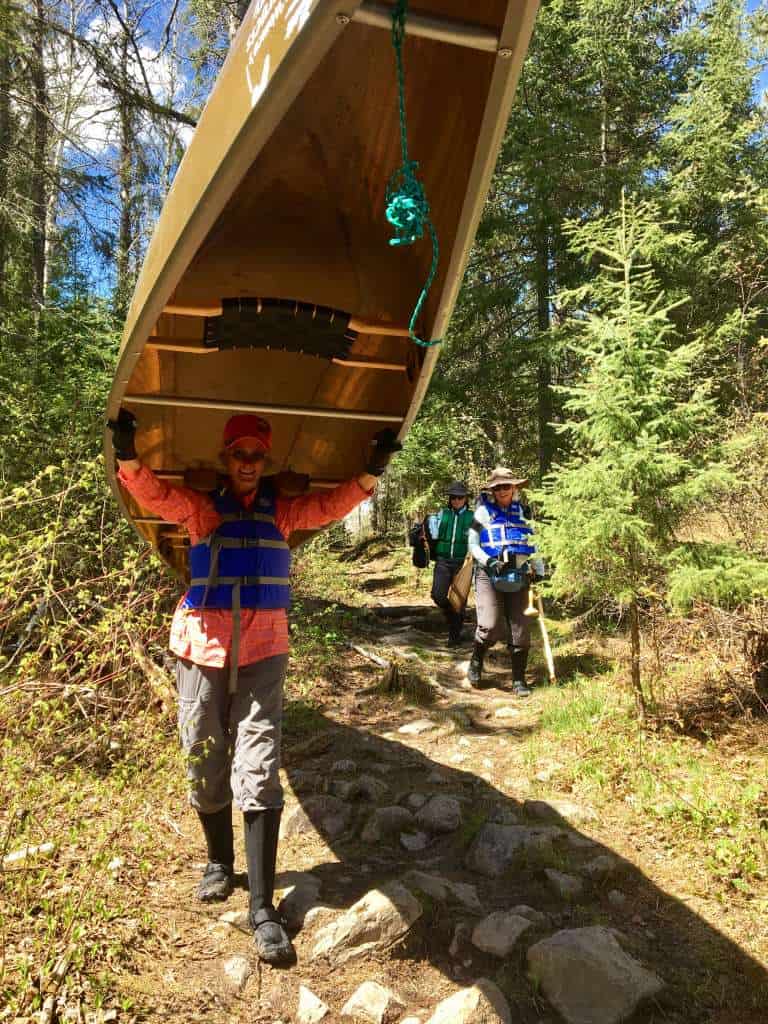
Later, Peta’s client talked about how important it had been to be encouraged but not pushed—to realize she was capable of more than she thought. It was a gratifying experience for Peta too. As the founder and owner of Women’s Wilderness Discovery in Ely, Minnesota, she aims to not only guide but teach her clients. She prefers not to push but to encourage them, knowing the growth that stems from trying new things.
“There is a measurable amount of growth with every trip and every person I take out… And it really is empowering, especially for mature women who think that, physically, they aren’t capable anymore,” she said.
Peta started her business after selling her talent agency in the Twin Cities in 2012. She wanted to pursue her passion for sharing the wilderness experience. And though she didn’t foresee it, she’s found a niche guiding mature women. Peta estimates that 75 to 80 percent of her clients are in their mid-50s or older.
Some have always loved the Boundary Waters but their friends no longer want to go. Others make it a multigenerational experience with their daughters and granddaughters. Many of them find Peta through organizations like Great Old Broads for Wilderness, an environmental advocacy group started by a self-proclaimed “feisty bunch of lady hikers” refuting the idea that wilderness is inaccessible to seniors. However they find her, Peta helps these women make the wilderness a part of their lives at any age.
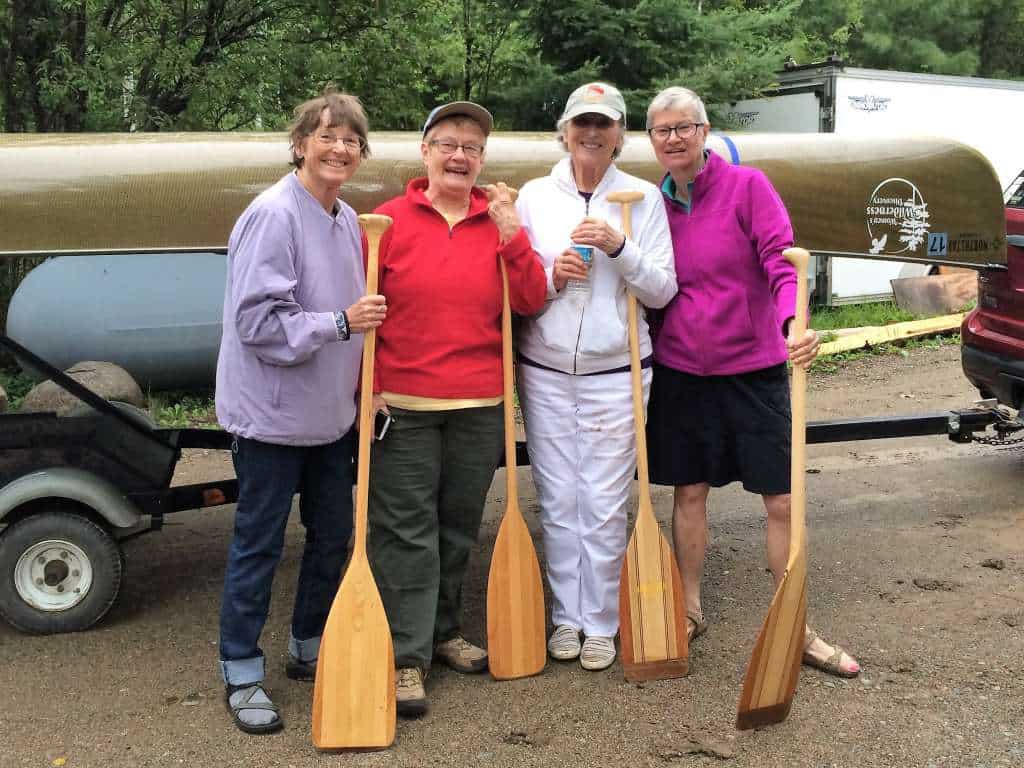
Mary Ann Mattox: Canoeing in her 80s
Mary Ann Mattox, now 83, found Peta through the Great Old Broads for Wilderness. She joined the group about three years ago after finding it at Midwest Mountaineering’s Outdoor Adventure Expo in Minneapolis. She was no stranger to the Boundary Waters—she and her book club have been going there since the 1980s—but when she and a group of Broads went on a trip with Peta, Mary Ann loved it.
“She came with us, she cooked all the meals. All I had to do was bring my personal belongings and my life jacket and my cosmetics, and drive up to Ely and connect with her. Considering my age and how easy it is, I probably would always go into the BWCA with Peta and the Broads,” Mary Ann said.
She returns to the Boundary Waters so often because she loves the sense of place, and the way she feels when she’s there—centered, she says, and peaceful.
“It’s a lot of work, especially if it rains the whole time. And you can imagine how hard it is for us to do those long portages, but I feel wonderful when I’m there,” she said.
She and Peta understand why many women stop visiting the wilderness as they age. Their friends stop going; hip or joint problems, or a lack of fitness make the idea of sleeping on the ground and portaging unappealing; or they have family commitments at home. Mary Ann has many friends who help their children offset the cost of childcare by spending two or three days a week with their grandchildren.
And according to Peta, “Women have busy lives and always feel so responsible for everybody in their lives.” It can be hard for them to find the time or commit to dates ahead of time. But sometimes, the trip itself can be a way to connect with family.
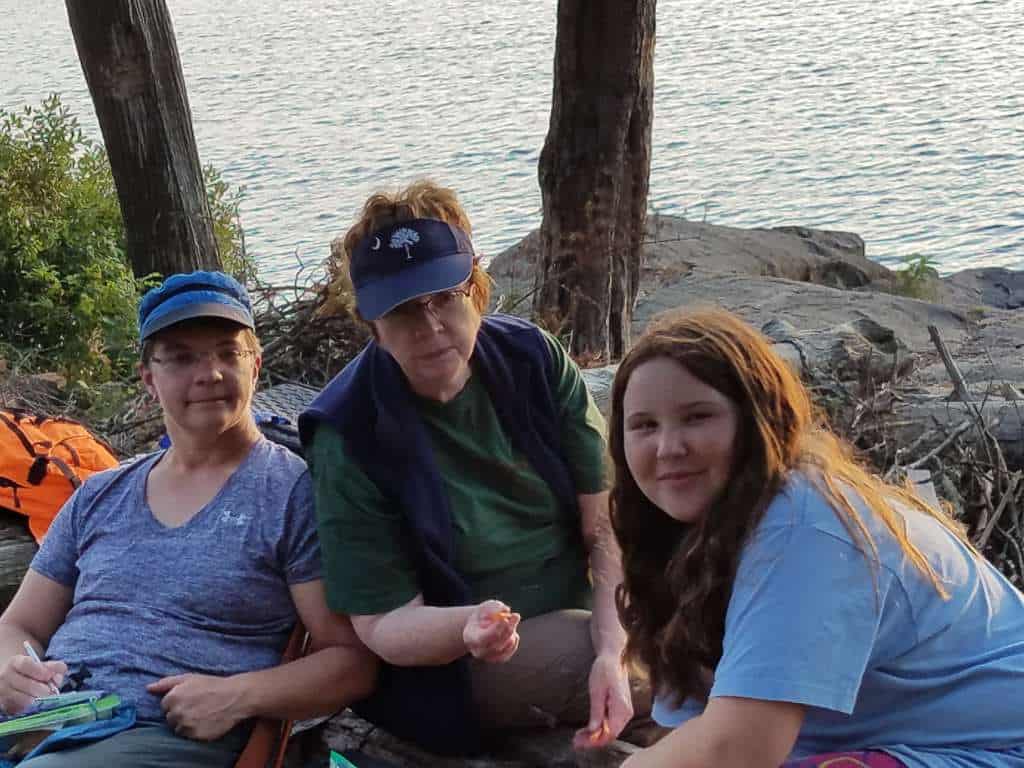
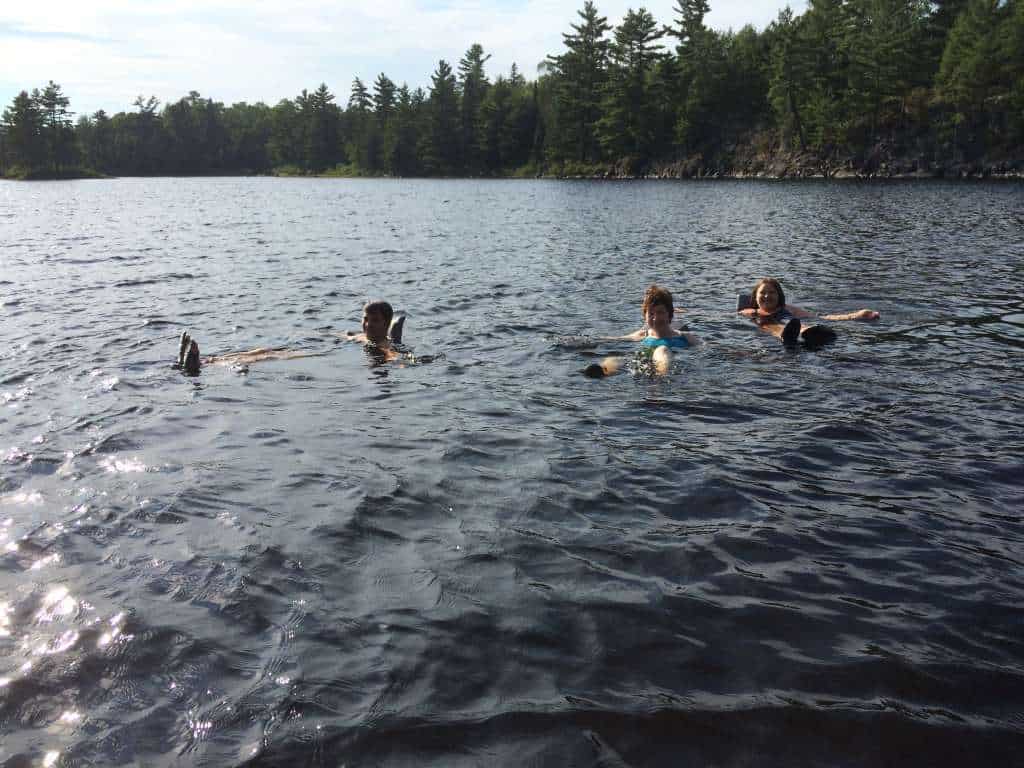
Nancy Sorenson: Canoeing as a family experience
Nancy Sorenson recently retired and relocated from Minnesota to the Bay Area in California to be closer to her daughter and 12-year-old granddaughter. While she enjoyed a trip to the Boundary Waters in 1990, finding partners and the time to return wasn’t easy as a professional woman—especially as she entered her 70s.
“Finding people interested in doing that sort of thing is always an issue, especially for women of my age. Not too many of my colleagues were eager to go out and do that kind of thing,” Nancy said.
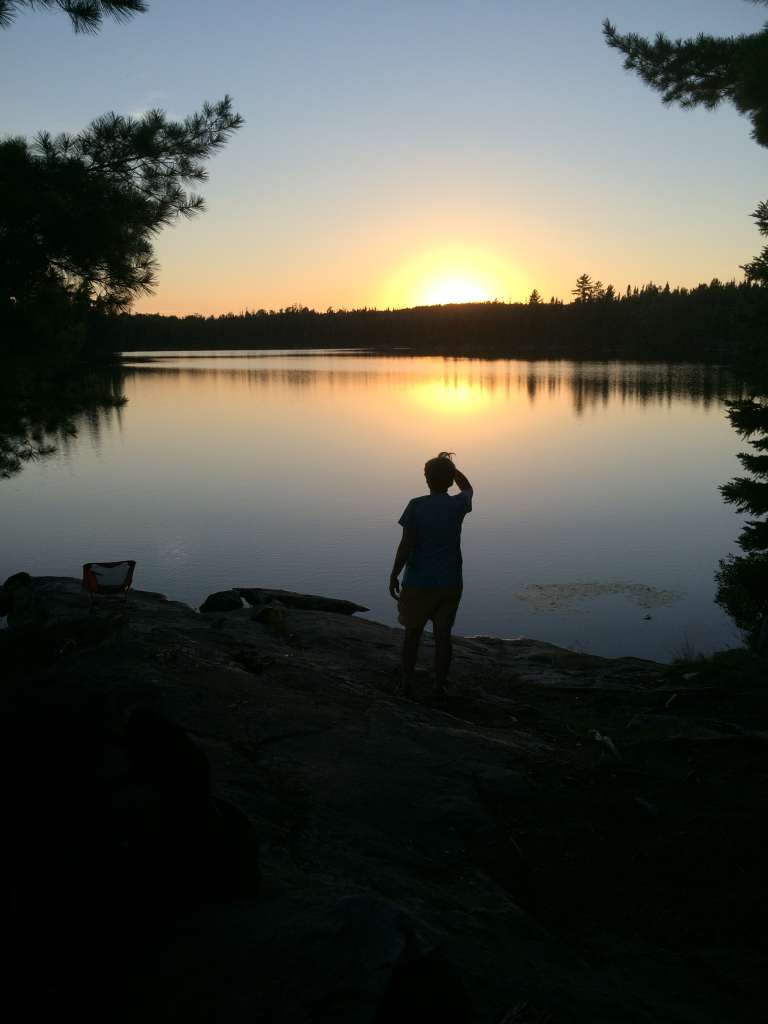
She too found out about Women’s Wilderness Discovery through Great Old Broads for Wilderness. Peta helped her plan a trip with her best friend, her daughter and her granddaughter. Getting to see her granddaughter, a 12-year-old city kid often on her cell phone, light up over the wilderness experience made it even more worthwhile. She brought an adventurous spirit to the trip, ready to investigate every noise in the woods and determined to go find a moose.
The multi-generational experience was meaningful for Peta too.
“I loved to sit back and watch the enjoyment. Nancy was just in heaven being there with her daughter, her granddaughter and her best friend in this special place. Everybody out swimming and splashing, telling stories around the campfire—they were always inclusive of me but I respect that time too, when I can tell it’s special and I can be in the perimeter,” she said.
Peta seems to have an eye for what her groups need. Whatever the age range, she outfits them with the best, lightweight gear. She tailors the weight of the packs to the needs of the individuals, customizes the food plan, and creates an environment where it’s okay to ask questions. She also lets her clients decide what type of trip they want.
“I ask them, do you want to be a turtle on a rock and bring a hammock, or do you want to see some territory and move camp every day?” she said. That personal touch is what attracts many of her clients.
Sherelyn Ogden: Not putting it off any longer
Recent client Sherelyn Ogden loved Peta’s approach the moment she met her. Sherelyn has always loved the outdoors and had wanted to go to the Boundary Waters for years. Last year, she and some younger friends from work decided to make it happen.
“I was feeling that if I didn’t go pretty soon, it was going to be really difficult to go. I shouldn’t put it off any longer,” she said. In Peta, she saw someone who “does everything in her power to figure out what your agenda is and then she will meet it if it’s safe to do that or possible to do that.”

They paddled over Labor Day weekend, Sherelyn 68, a friend in her mid-20s, and another in her late 30s, along with Peta and Peta’s friend, both in their 50s. Sherelyn doesn’t sugarcoat the experience—it wasn’t easy. She felt out of shape and it was difficult to walk across rocks or steep terrain. Her 30-pound pack sometimes felt like it weighed 100 pounds.
But everyone pitched in to get things done, and everyone had a role. And Sherelyn got what she needed: her trip to the Boundary Waters plus a break from a stress at home, including difficulties at work, retiring, and caring for her husband, who has been ill. She also got some laughs.
“They were very patient with me and my limitations, like not being able to figure out how to get my headlamp off at night.” Her tent-mates would ask her if she was glowing when she couldn’t figure it out, though they weren’t able to offer much more than lighthearted teasing. “They couldn’t get it off either, it turns out.”
There are, of course, challenges that come with age. It wasn’t always easy, for example, for Nancy to get out of the tent in a hurry when she was trying to keep the bugs out. Mary Ann talked about a trip she took in her late 70s with her book club (not with Peta), when she paddled so hard she had to go to a chiropractor and get adjusted afterward. And balance can be an issue. But as Sherelyn said, as long as a woman is agile enough to get in and out of the canoe, she can go on a trip with Peta.
And Peta knows that women can rise to the challenge, whether that means learning to step over a log with a canoe on her shoulders or carrying the life jackets and paddles across a portage.
As she said, “I’m sure some of these ladies, their kids are thinking, ‘Oh boy. I hope mom is going to be okay.’ But they come back and they’re perfectly fine. They spread their wings in new decades in their lives and find out this is still possible. That beautiful, wonderful wilderness is still out there to enjoy. They just have to approach it differently.”
